Germany and Central Asia have an extraordinary relationship
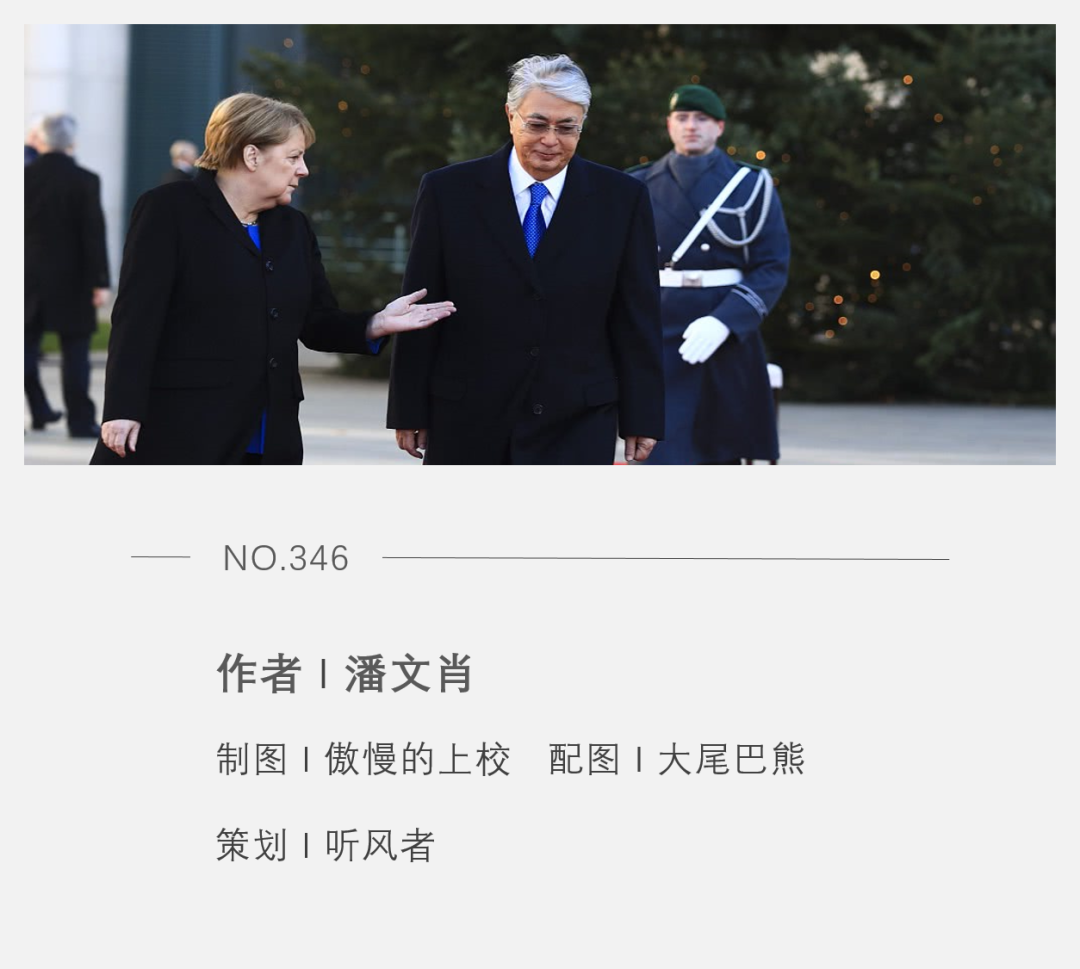
In 2020, the new crown epidemic rages around the world, and five countries in Central Asia are also affected. After the outbreak, the five Central Asian countries also began to adopt strict control measures to prevent imported cases. By August 2020, the epidemic in Central Asia tends to ease , and Central Asian countries, led by Kazakhstan and Uzbekistan, have begun to resume international flights.
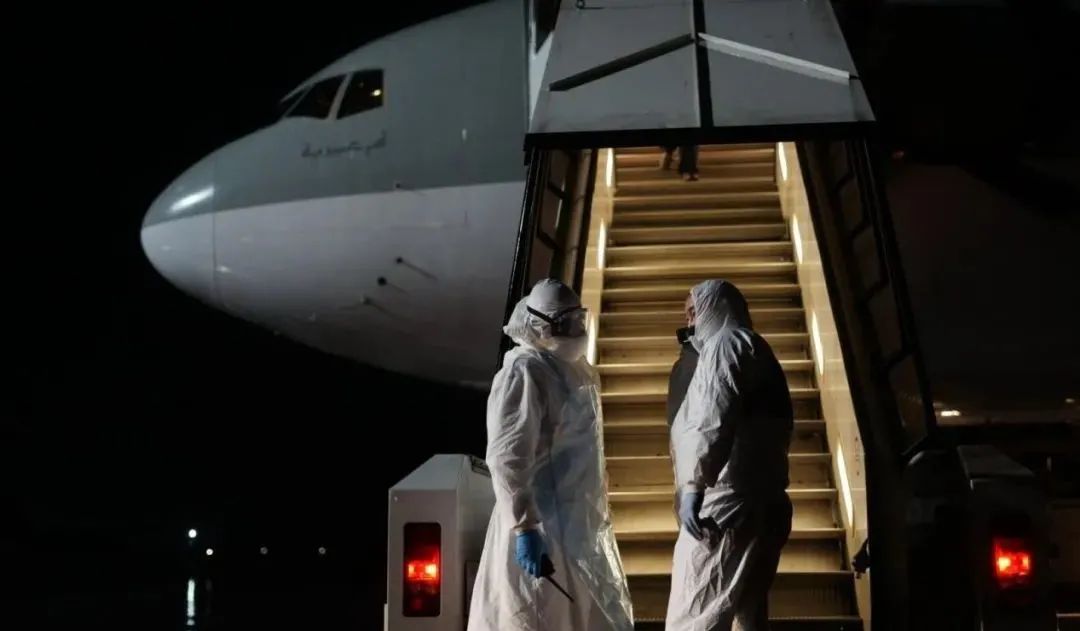
Picture source.pexels
Kazakhstan resumed flights with the UAE, Germany, Belarus, Ukraine, and Turkey in August 2020, and resumed flights with Russia, Uzbekistan, and Kyrgyzstan in September. Uzbekistan resumed flights with Turkey, the UAE, Germany, Kazakhstan, Kyrgyzstan and other countries in September of the same year.
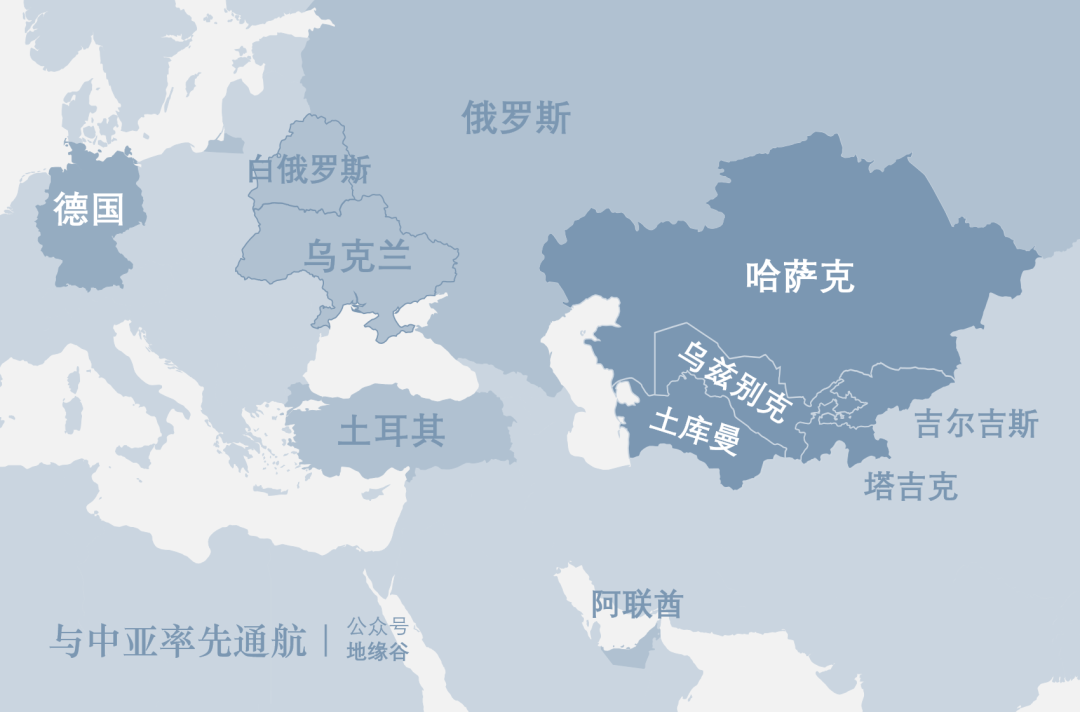
Among the above-mentioned countries that have resumed flights, the UAE and Turkey have always had close ties with Central Asian countries due to their ethnic and cultural ties, and the relations between Russia and Ukraine and Central Asian countries are also very close. In contrast, with the resumption of flights in Germany unobtrusive , Germany is the only one with Kazakhstan, Uzbekistan and China to resume service of the Western European countries, Germany and the countries of Central Asia highlights the unusual diplomatic relations. Why can Germany, as far away as Western Europe, establish extraordinary diplomatic relations with Central Asian countries?
Continuation of the "Oriental Policy"
During the Cold War, the Federal Republic of Germany, which pursued a policy of demilitarization, formulated an "Eastern Policy" with the acquiescence of the United States in order to ease the contradiction with the Eastern camp. The so-called "Eastern Policy" means that while the Federal Republic of Germany is based on the Western camp and guarantees its own security, it strives to ease relations with the Soviet Union and Eastern Europe and strengthen dialogue and cooperation with them.
After the Cold War, the reunification of Germany, the German began to face new opportunities: First of all, after the unification of Germany with a population of as many as 80 million, is a veritable regional power; secondly, after the reunification of Germany's economic development, is when the world first Large trading country and the first creditor country ; Finally, Germany's international political status has been unprecedentedly improved, and its international influence has increased significantly.

Picture source.pexels
Under the new opportunities, we think Germany must afford "global responsibility" and therefore inheritance and development "Ostpolitik", to fill the post-Soviet power vacuum in Central Asia and other places , has become a shortcut to Germany to enhance political influence .
For this reason, Germany first released goodwill to the Central Asian countries and strengthened the trust of the Central Asian countries in Germany. At the beginning of the independence of the five Central Asian countries, Germany quickly established bilateral relations with the five countries. December 31, 1991, only six days after the disintegration of the Soviet Union, namely Germany announced its recognition of the five Central Asian country's independence, and soon send an ambassador, is a country in Western Europe in the first set up embassies in the five Central Asian countries . In addition, while continuing to maintain increasing trade exchanges with Central Asian countries, Germany has also strengthened and expanded cooperation with them in other areas. This is mainly reflected in the fact that the exchange of visits between high-level bilateral high-level visits is the starting point in politics and economic cooperation. Project investment is used as a means.
Kazakhstan issues stamps for the 20th anniversary of diplomatic relations,
The closest relationship must revolve around Kazakhstan, including
Germany, China, and neighboring countries of Kazakhstan
﹀
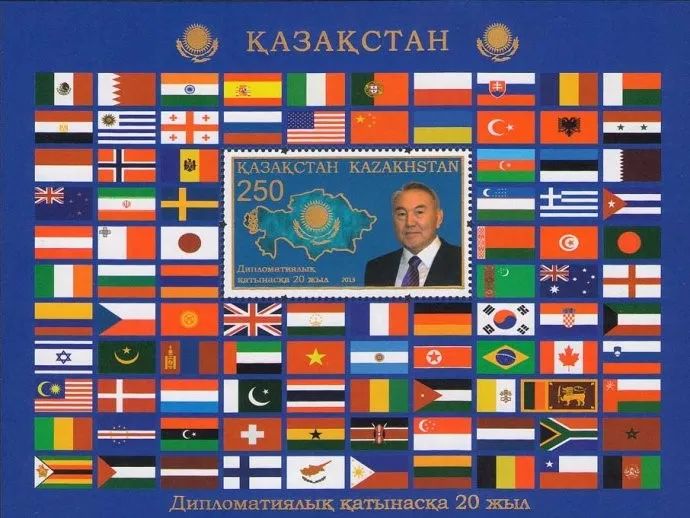
Through good bilateral interactions, Germany and Central Asian countries have established good mutual trust, which has established the foundation for close diplomatic ties between the two sides.
Linked by the Germans of Central Asia
In 1989, the last census of the Soviet Union showed that more than half of the Soviet Germans (more than 1.13 million) lived in today's five Central Asian countries. Protecting the interests of the Germans in Central Asia was the core of Germany's early Central Asia policy . At present, Germans are still one of the most numerous ethnic groups in Kazakhstan and other countries, and they are also the most populous Western European ethnic group in Central Asia. This has become an important link that prompts Germany to pay attention to and develop relations with Central Asian countries.
From the looks, it's still very different
﹀

In the 1990s, Germany enacted the German Return Law, and overseas descendants of Germans have the right to apply for German citizenship. From 1989 to 2019, the number of Germans in Kazakhstan alone decreased from 957,518 to 178,029, and there were less than one-fifth of the original number of Germans in Central Asia.
In recent years, there is a new case was moved to Germany because Germans adapted to local social environment and move back to Central Asia and Russia, in 2014 the number reached a quarter to move back to move out. Now in Central Asia, there are still about 200,000 Germans. Because of the large number of Germans in Central Asia, it plays a very important role in the relations between Central Asian countries and Germany and even the European Union. The EU's Central Asia policy is basically being promoted by Germany, because there are a large number of Germans here.
Germany is too humid, it's better to go back to "hometown"
(The picture shows the capital of Kazakhstan, Nur-Sultan)
﹀

Picture source.pexels
With the frequent exchanges between Germans in Central Asia and Germany, the ties between Germany and the five Central Asian countries have become increasingly close. The close ties between the people have in turn promoted official exchanges between the two sides, which is also an important guarantee for the development of bilateral relations. .
Actively provide economic assistance to five Central Asian countries
After the disintegration of the Soviet Union, the five independent Central Asian countries generally faced severe economic conditions. Industrial production was on the verge of collapse, agricultural production came to a standstill, materials were scarce, supplies were tight, and people's living standards fell sharply. At the same time, the five Central Asian countries all take privatization as the main content of economic reform and the transition to a market economy as the direction of reform, but there are many restrictive factors and economic transition is difficult , which directly leads to political instability in the five Central Asian countries.
After Kazakhstan’s new currency, the tenge, was listed, the common people only had five days to come.
Exchange their original currency, which destroyed the wealth of many Kazakhs.
﹀

Germany has always attached importance to Central Asia in geopolitics. Germany is located in the middle of Europe, and its geographical features surrounded by strong neighbors make it often start from a geopolitical point of view when formulating foreign policies. Central Asia has entered Germany's field of vision very early because of its geopolitical value. The volatile situation in Central Asia to Central Asia, but not conducive to Germany as an entry point to intervene in the affairs of the CIS countries . Therefore, maintaining stability in the CIS countries, especially in Central Asia, has become an important diplomatic strategy for Germany.
In the early 1990s, Germany provided 75 billion marks in financial assistance to the CIS countries, including the five Central Asian countries. Since then, Germany is still actively appealing and persuading Western and even Far Eastern countries to provide financial assistance to the CIS countries, including the five Central Asian countries. Germany even stated to the outside world that Germany has provided a large amount of assistance to Eastern Europe and the CIS countries, "now other countries must also make their contributions, including Europe and countries in the Far East."
The CIS at that time was more like an international organization that collectively needed to be aided
(The picture shows some leaders of the CIS countries)
﹀
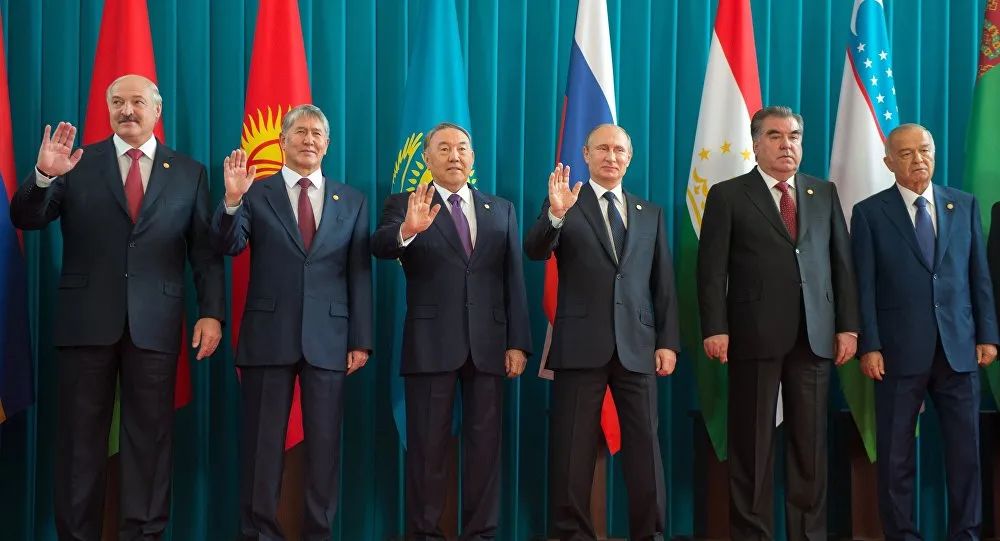
Picture source.pexels
Although the total amount of German assistance to the five Central Asian country's economy is not the greatest, but compared to the "lip service to the" Other Western countries, Germany still won the goodwill of five Central Asian countries . In addition, Germany has called for assistance to the CIS countries including the five Central Asian countries on international public occasions, and it has gained further confidence in the five Central Asian countries, and the relations between the five Central Asian countries and Germany have also been further developed.
From outputting the color revolution to sharing economic benefits
After 2000, with the social transformation of Central Asian countries, national construction has gradually been on the right track. Germany has become the organizer and promoter of the five Central Asian countries participating in various regional cooperation organizations, and the contacts between Germany and the five Central Asian countries have become more frequent. From 2001 to 2010, the main objective of the German and Anglo-American Central Asian policy is with the use of various means to implement Western values in Central Asia . After the "Tulip Revolution" in Kyrgyzstan in 2005, Germany began to export color revolutions to Central Asian countries, trying to transform Central Asian countries together with the United States and Europe, but with little success, Germany's diplomatic relations with the five Central Asian countries were also affected. In such a situation, immediately realized that Germany, the United States following the output color revolution but would be damaging to its interests in Central Asia .
The purpose of the "Tulip Revolution" is to overthrow the pro-Russian President Akayev
﹀

Picture source.pexels
After the Andijan incident in December 2005, Uzbekistan's relations with the United States and other Western countries took a sharp turn. Central Asia has begun to re-adjust the policy of Germany did not keep up with the pace of the United States , but for the United States to increase diplomatic pressure on Uzbekistan said: if the United States trying to help Ukraine military base stationed in the conflict with Ukraine, first of all must be supported by the EU. Germany's statement has improved relations with Uzbekistan. In sharp contrast to the "deportation" of the US military that year, Germany was allowed to continue to lease the Termez military base in southern Uzbekistan.
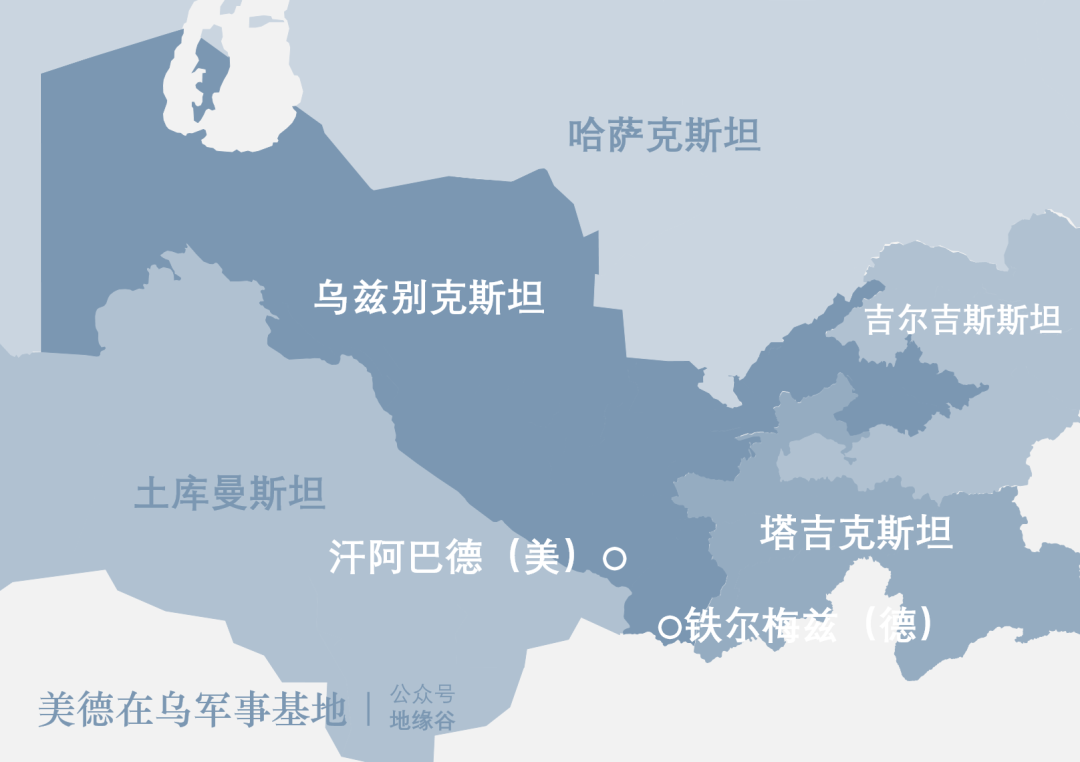
For this reason, the Uzbek government took back the U.S. military base of Khan Abad
﹀

Picture source.pexels
After the Andijan incident, the relations between Germany and the five Central Asian countries quickly warmed up, and the economic and trade cooperation between the two sides also advanced steadily. Five countries in Central Asia, Kazakhstan has become the most important trading partner and investment destination in Germany . In 2007, it was during the German presidency of the European Union that the relationship between the European Union and Central Asia entered a new stage. Since then, Germany has maintained good interaction with Central Asian countries, and bilateral relations have achieved sustained development.
In 2007, during what holds the rotating EU presidency in Germany, the EU and Central Asia relations entered a new phase .
From December 5 to 6, 2019, Tokayev, the newly elected President of Kazakhstan, visited Germany and met with German Chancellor An Merkel. Both sides expressed their willingness to strengthen cooperation between the two countries. During the visit, the two countries reached an economic cooperation agreement totaling 2.4 billion U.S. dollars.

Picture source.pexels
It is understood that Germany, the world's fourth largest economy, is Kazakhstan's 12th largest investor. Up to now, the total amount of German direct investment in Kazakhstan has reached 5 billion US dollars. Kazakhstan's stable investment environment has brought convenient investment conditions for many German companies. With the deepening of the border opening between Kazakhstan and Uzbekistan, the Central Asian market is attracting more German companies to pay attention.
Merkel said, "There Based on this, the visit of President of Kazakhstan, Kazakhstan will strengthen the position in Germany, and promote mutual cooperation between the two countries in maintaining good relations in the past while establishing new partnerships ."
It is precisely because of this that Germany and Central Asian countries have a very good foundation of mutual trust, both official and private, and Germany can therefore maintain close diplomatic relations with the five Central Asian countries, ahead of other Western countries and Central Asian countries. Not surprising.
Attention and the star knowledge within reach
Pan Wenxiao∣Member of Geo Valley, Chinese ancient history and modern history lover
Reference: Unifying Germany's relations with Eastern Europe and the CIS countries. Gao Deping; Why did the two Central Asian countries resume flights with Germany in the first place? China News Network; The Goal and Path Choice of German Central Asian Policy-Based on the Investigation of Russian Literature. Ma Yuan; The Central Asian Ethnic Policy in the Soviet Union: Process and Thinking. Yang Shu
* This article is provided by the author and does not represent the position of Geo Valley

COMMENTS